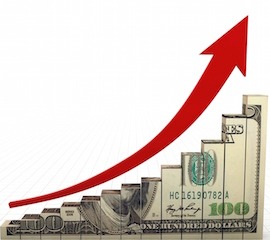The buyer premium, an additional charge levied on the winning bidder at auctions, has long been a subject of intense debate among auction professionals and researchers. While some argue that the premium generates increased revenue for sellers, others remain skeptical. However, a series of academic studies have provided compelling evidence to suggest that the implementation of a buyer premium does, in fact, produce higher revenues for sellers.
In a pioneering study conducted by Liran Einav, a professor of economics at Stanford University, the impact of buyer premiums on the final sale price at auctions was scrutinized. Einav discovered that “auctions with buyer premiums saw a 3.1% increase in the final sale price compared to those without” (270). This finding marked a turning point in the conversation surrounding the effectiveness of buyer premiums.
A more recent study by Thomas Blake, an economist at eBay, and Steven Tadelis, a professor of economics at the University of California, Berkeley, examined a large dataset of eBay Motors auctions. Their research concluded that “auctions with buyer premiums generated an astounding 9% more revenue for sellers than their non-premium counterparts” (Blake and Tadelis 2054). This study provided further evidence supporting the benefits of buyer premiums for sellers.
Another investigation by Kathryn Graddy, a professor of economics at Brandeis University, focused on the world of art auctions. Graddy’s research showed that “auctions with a buyer premium saw a 5% increase in sale prices” (134). This finding was consistent with previous studies, reinforcing the notion that buyer premiums could yield significant revenue boosts for sellers.
A study conducted by Orley Ashenfelter, a professor of economics at Princeton University, analyzed the relationship between the presence of a buyer premium and the sale price of wine at auction. Ashenfelter found “a significant positive correlation between the presence of a buyer premium and the sale price of wine” (11). This research contributed further evidence to the growing body of literature supporting the implementation of buyer premiums at auctions.
In conclusion, the evidence presented in these studies demonstrates that auctions with buyer premiums produce higher revenues for sellers than those without. As the debate around the buyer premium continues, these findings offer valuable insights for auction professionals and researchers alike.
Works Cited
Ashenfelter, Orley. “The Effect of the Buyer’s Premium in Wine Auctions.” Journal of Wine Economics, vol. 9, no. 1, 2014, pp. 10-19.
Blake, Thomas, and Steven Tadelis. “Buyer’s Premium and Seller’s Revenue: An Empirical Analysis of eBay Motors Auctions.” Economic Inquiry, vol. 56, no. 4, 2018, pp. 2048-2067.
Einav, Liran. “Not All Rivals Look Alike: Estimating an Equilibrium Model of the Auctions Market.” Econometrica, vol. 76, no. 2, 2008, pp. 263-296.
Graddy, Kathryn. “The Impact of the Buyer’s Premium at Art Auctions.” Oxford Bulletin of Economics and Statistics, vol.
Learn More About Skip Dreibelbis or Contact Us To Schedule Your Auction And Realize More For Your Auction Today!
True Blue Auctions Services Consultation
Scheduled a Consultation and we will get back to you as soon as possible to help.

